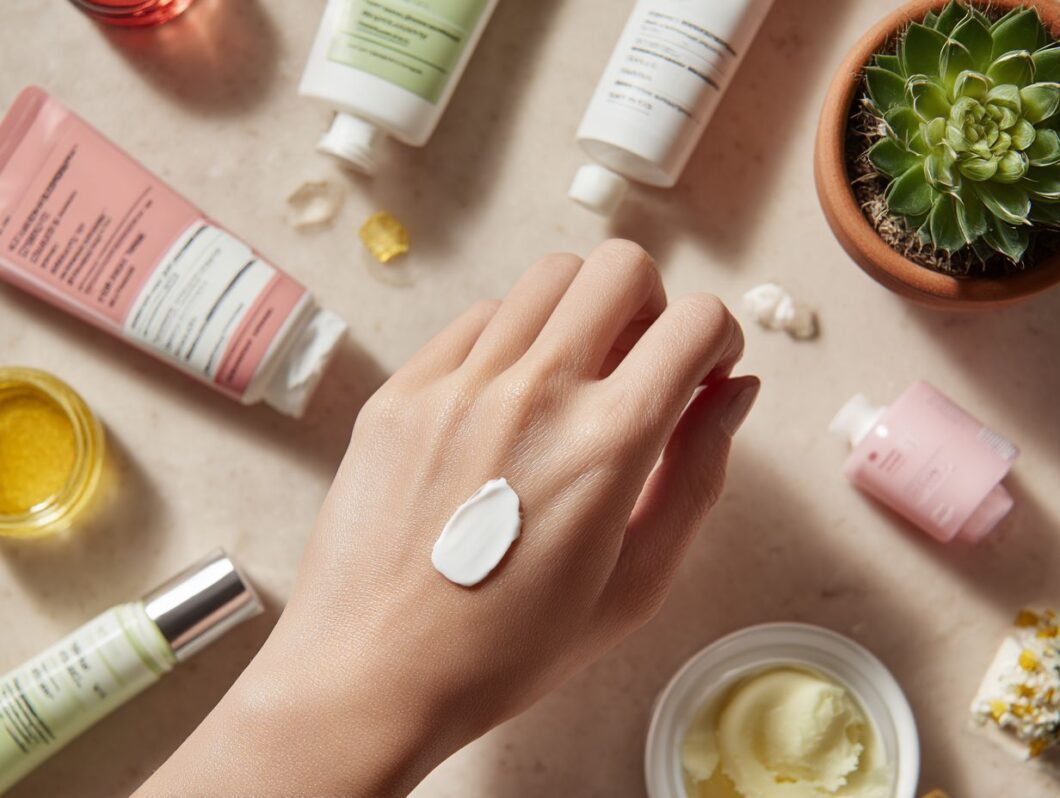Moisturizers are a fundamental component of many skincare routines, offering promises of hydration and a radiant complexion. However, I recognize that not all moisturizers are created equal, and some may inadvertently cause more harm than good. In my exploration of different types of moisturizers and their functions, I aim to identify signs that a particular product might be contributing to skin issues. I also provide tips on how to select the right moisturizer tailored to individual skin types. Understanding which ingredients to avoid is crucial, and I advocate for discovering natural alternatives that can maintain skin health. Whether one is new to skincare or a seasoned enthusiast, this guide serves to equip individuals with the knowledge to navigate the world of moisturizers with confidence.
Key Takeaways:
Understanding Moisturizers and Moisturizing Techniques
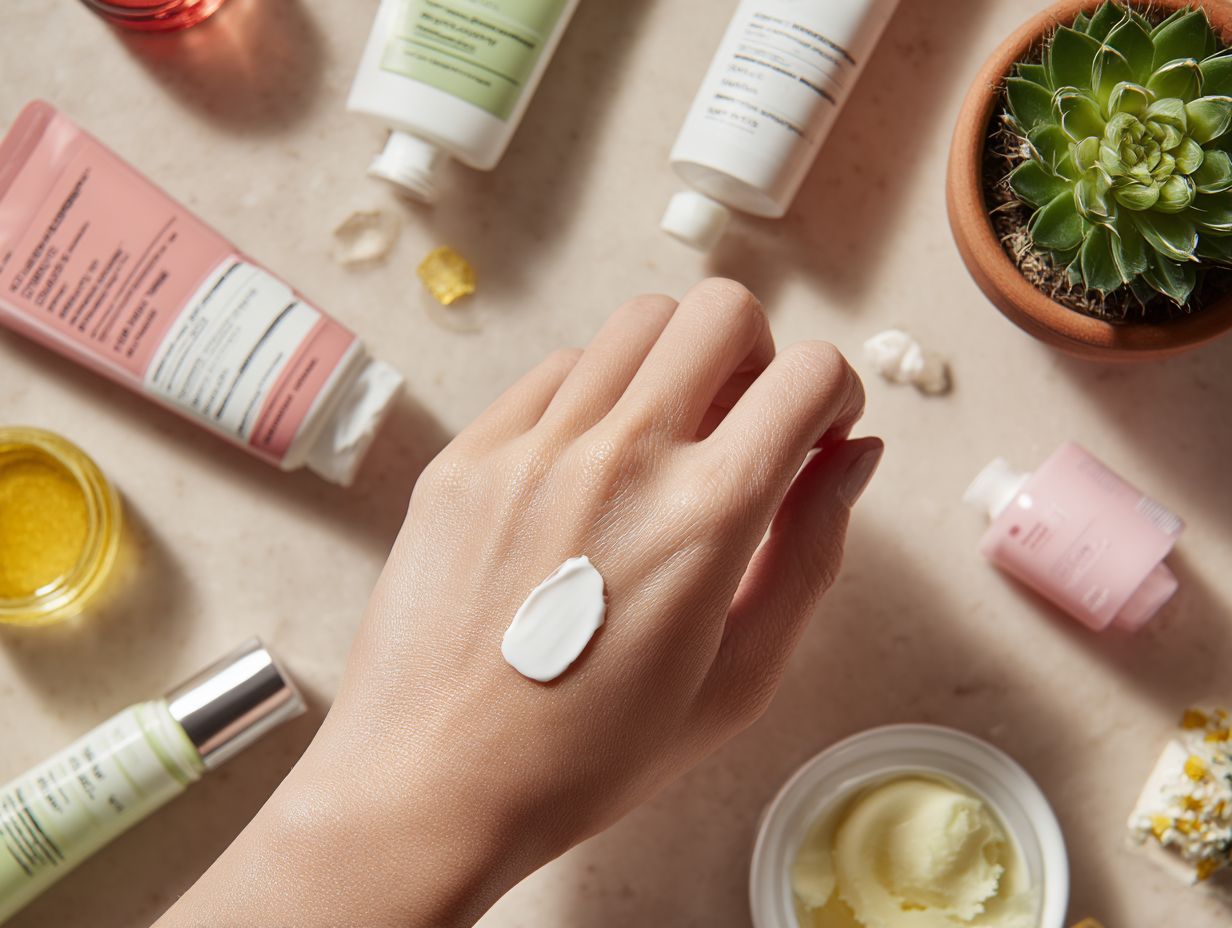
I understand that moisturizers are essential for maintaining skin health, as they play a pivotal role in ensuring proper hydration and are specifically formulated to address various skin types, including dry, oily, and sensitive skin.
A quality moisturizer helps repair the skin barrier, combats transepidermal water loss, and incorporates active ingredients such as hyaluronic acid and ceramides to achieve optimal results. According to an article from Karger, understanding the skin barrier’s function is crucial in selecting products that effectively combat these issues. It is important to consider environmental factors and skin changes when choosing the best moisturizer.
I recognize that different formulations, ranging from lightweight options to rich nourishing creams, are available, all of which align with the principles of effective personal skincare and current trends in Japanese skincare, including the use of vitamin C and SPF protection for skin repair.
Types of Moisturizers and Their Functions
Moisturizers are available in various types, each tailored to meet specific functions for different skin types, including emollients, occlusives, and those enriched with active ingredients like botanical extracts, vitamin C, and hydrating serums.
Understanding these distinctions can significantly enhance skincare routines and assist individuals in selecting the most appropriate product for their unique needs.
For example, emollients work by softening the skin and increasing its pliability; they are often found in creams and lotions containing ingredients such as shea butter or glyceryl stearate. In contrast, occlusives are designed to create a barrier on the skin’s surface, effectively preventing moisture loss, with common examples including petroleum jelly and dimethicone. According to a study on ResearchGate, different types of emollient creams can have varied physiological effects on the skin barrier, especially in adults with atopic dermatitis.
Additionally, moisturizers with active ingredients like hyaluronic acid offer a substantial boost of hydration by attracting and retaining moisture.
To select the right moisturizer, it is essential to consider factors such as skin type-whether oily, dry, or combination-as well as specific concerns like sensitivity or aging, ensuring a well-balanced approach to skincare.
Signs that Your Moisturizer May Be Harmful
Identifying signs that my moisturizer may be harmful to my skin is essential for preventing adverse reactions such as facial redness, breakouts, and the exacerbation of skin conditions like eczema or rosacea. I recognize that certain ingredients in moisturizers can cause irritation or worsen underlying skin issues. This is why understanding potential allergens is crucial; as the FDA notes in their guidance on allergens in cosmetics, monitoring how my skin reacts after application is important.
Common Negative Effects on Skin
I have observed that improper use or formulation of moisturizers can lead to several negative effects on the skin, including irritation, allergic reactions, and exacerbation of acne-prone conditions. This makes it essential to ensure correct application and thoughtful ingredient selection.
When I apply the wrong type of moisturizer, especially if I have sensitive or acne-prone skin, I can easily see my condition worsen, resulting in increased breakouts or uncomfortable redness. Therefore, I prioritize being vigilant about reading labels to identify potentially harmful ingredients such as fragrances or alcohol, which may trigger adverse reactions.
By choosing non-comedogenic products specifically formulated to prevent pore clogging, I can significantly mitigate the risk of irritation. Additionally, I believe that patch testing new products before fully integrating them into my routine is a prudent approach to avoid unexpected issues and effectively maintain skin health.
How to Choose the Right Moisturizer for Your Skin Type
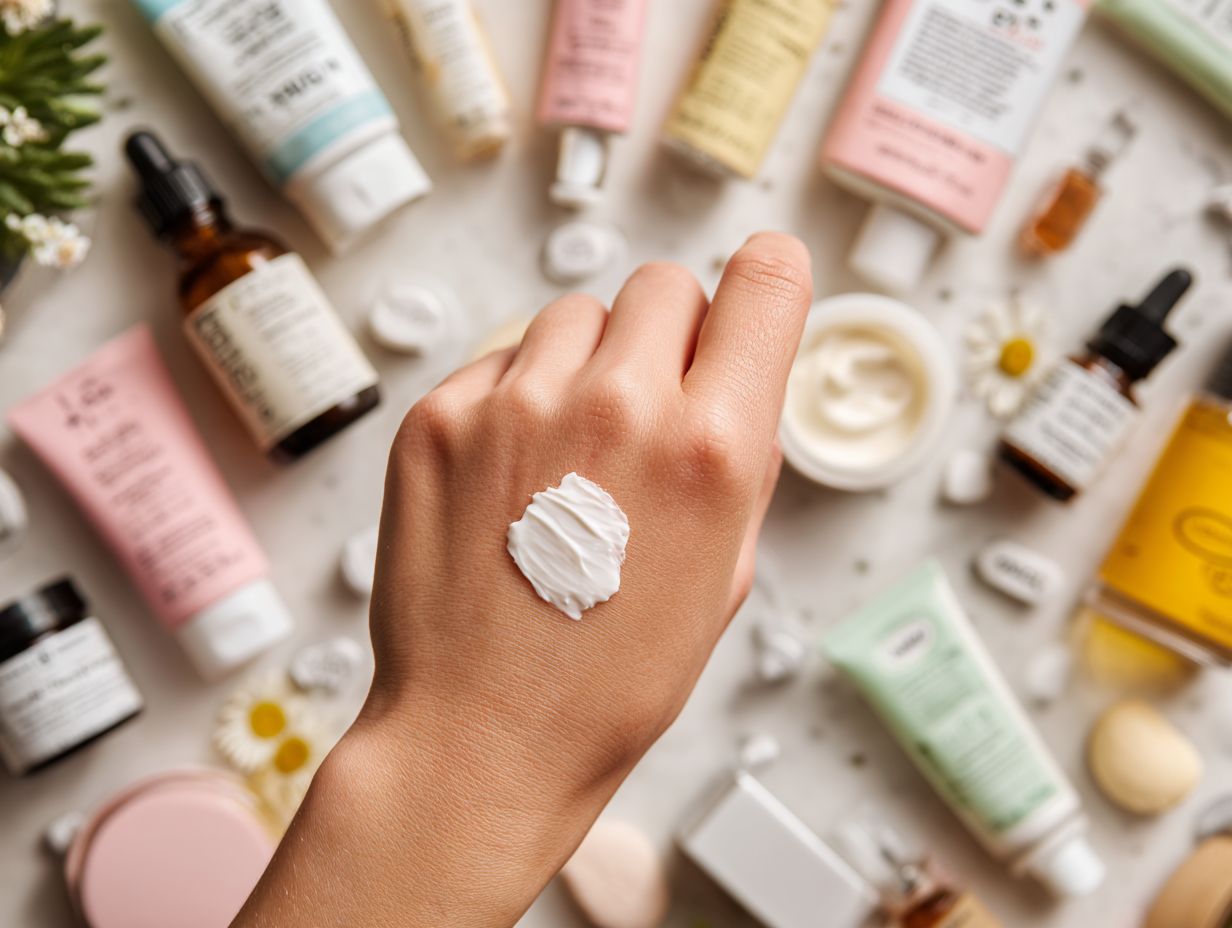
Selecting the appropriate moisturizer for my skin type is essential to maintaining an effective skincare regimen. It not only ensures adequate hydration but also addresses specific concerns such as dryness, oiliness, or signs of aging.
I recognize that different skin types necessitate different formulations; for example, my oily skin may benefit from lightweight formulas, while dry skin would require richer, nourishing creams or anti-aging products designed to enhance moisture retention.
Tips for Selecting a Safe and Effective Moisturizer
Selecting a safe and effective moisturizer requires me to understand my skin’s unique needs and prioritize ingredients that support overall skin health, such as those that offer SPF protection and have been endorsed by dermatological experts.
As I explore various options, I pay close attention to the ingredient list. I look for formulations that include hydrating agents like hyaluronic acid, glycerin, or natural oils, which provide deep nourishment.
For those of us concerned about breakouts, seeking products labeled as non-comedogenic proves beneficial, as they are designed not to clog pores. Additionally, I recognize the importance of a sufficient SPF rating, which is essential for protecting the skin from UV damage.
I also find that consulting a dermatologist can help me identify the best choices tailored to my specific skin type and conditions, ensuring that I make informed decisions that align with my skin health goals.
Ingredients to Avoid in Moisturizers
When I select a moisturizer, I recognize the importance of being aware of potentially harmful ingredients that could damage sensitive skin or provoke undesirable reactions.
Ingredients such as retinol and exfoliating acids may not be suitable for everyone. By understanding these components, I can make informed choices that align with dermatological advice and ensure the best possible care for my skin.
Potentially Harmful Ingredients to Look Out For
I recognize that potentially harmful ingredients in moisturizers can lead to allergies, irritation, and exacerbate existing skin conditions, making it crucial for me to identify and avoid common culprits that may compromise skin health.
For example, fragrances, parabens, and sulfates can trigger adverse reactions, particularly in individuals with sensitive or acne-prone skin types. Fragrances often appear on labels under the terms ‘fragrance’ or ‘parfum,’ causing dryness and irritation. Parabens, commonly used as preservatives, have the potential to disrupt hormonal balance, while sulfates can strip away natural oils, leaving the skin feeling tight and uncomfortable.
It is prudent for me to seek out safer alternatives, such as plant-based oils, gentle botanical extracts, and naturally derived preservatives that nourish and protect the skin without causing harm.
By prioritizing gentle formulations, I can effectively maintain skin health while enjoying the benefits of moisturization.
Alternatives to Traditional Moisturizers
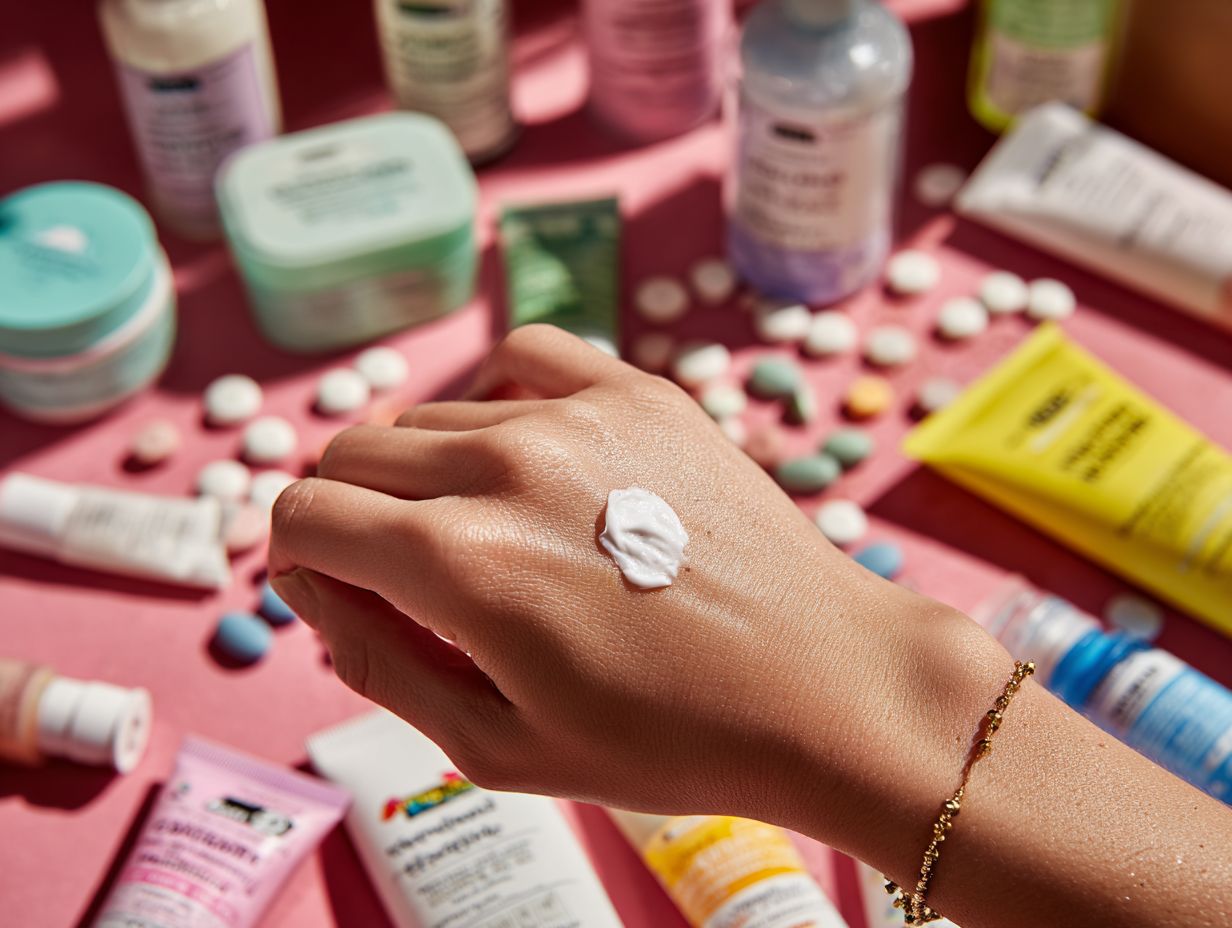
Exploring alternatives to traditional moisturizers has allowed me to discover natural options and DIY skincare solutions that effectively harness the benefits of botanical ingredients while promoting overall skin health.
These alternatives often offer nourishment without the chemicals commonly found in some commercial products.
Natural and DIY Options for Healthy Skin
I find that natural and DIY moisturizer options, particularly those that incorporate jojoba oil and other home remedies, can effectively enhance skin rejuvenation while accommodating various skin types, including sensitive skin and acne-prone skin, without the risk of harmful chemicals.
For example, I often combine almond oil with a touch of honey to create a hydrating blend that is particularly beneficial for dry skin, as it provides essential nutrients and a significant moisture boost. Additionally, incorporating aloe vera gel into a homemade moisturizer not only soothes irritated skin but also aids in the healing of minor wounds, making it an excellent choice for those with sensitive skin.
To prepare these mixtures, I simply mix the chosen oils and ingredients in a clean bowl, adjusting the ratios to suit my individual preferences.
The beauty of these personalized solutions lies in their ability to address specific concerns, such as redness or flakiness, ultimately leading to healthier and more radiant skin.
Frequently Asked Questions
How can I tell if my moisturizer is doing more harm than good?
There are a few key signs that your moisturizer may be causing more harm than good. These include excessive oiliness or dryness, breakouts or irritation, and an overall lack of improvement in your skin’s appearance.
What ingredients should I look out for in my moisturizer?
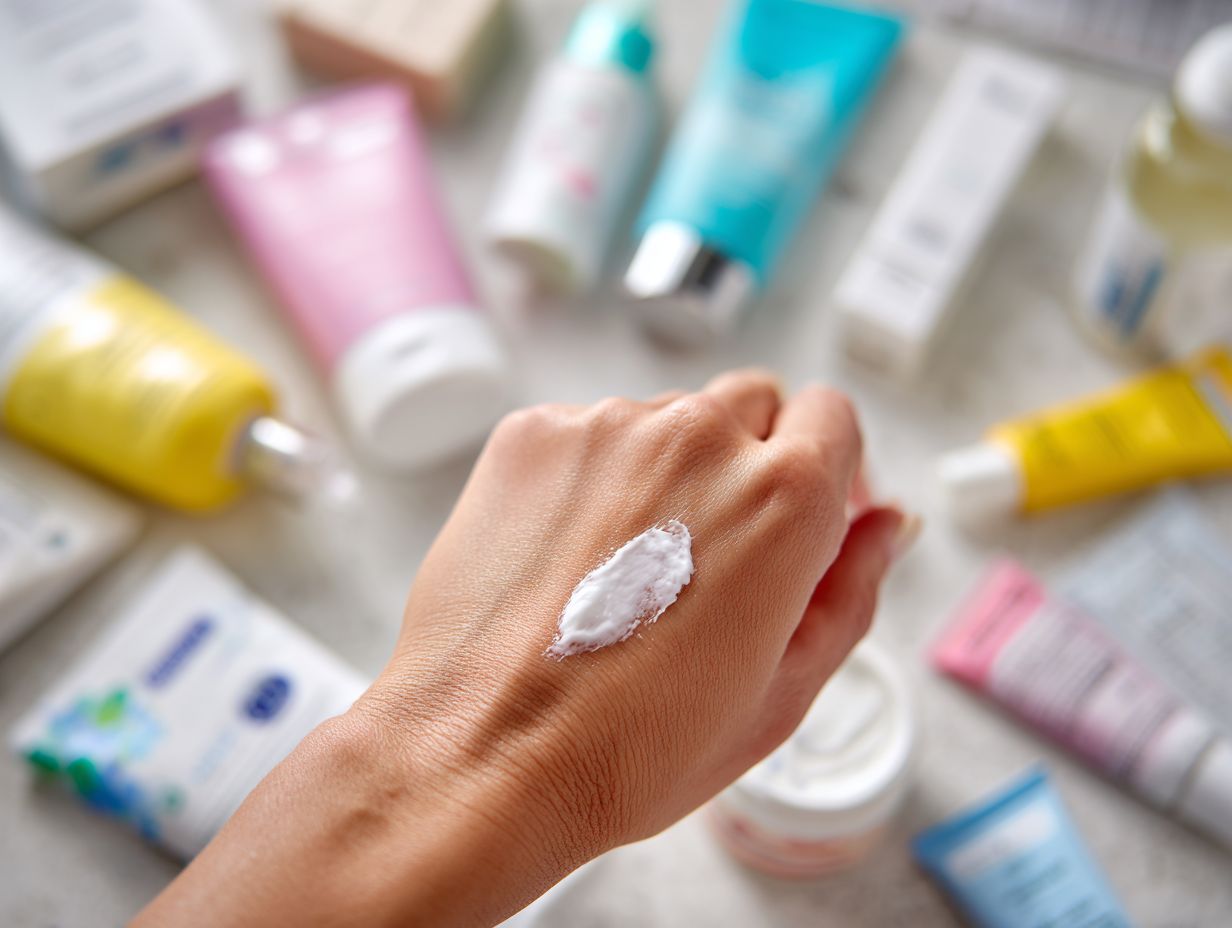
Some common ingredients in moisturizers that can be harmful include fragrances, alcohol, and essential oils. These can be irritating to the skin and cause more harm than good in the long run.
Is it possible to be allergic to my moisturizer?
Yes, it is possible to have an allergic reaction to your moisturizer, especially if it contains fragrances or other harsh ingredients. Avoid common moisturizing mistakes by choosing products with SPF protection and skin health tips in mind. If you notice redness, itching, or swelling after using your moisturizer, it may be time to switch to a gentler option, possibly considering Japanese skincare for its soothing properties.
How long should I wait to see results from my moisturizer and Vitamin C Brightening Moisturizer?
Generally, you should see some improvement in your skin’s hydration and overall appearance within a few weeks of using a new moisturizer. Remember, proper application and adhering to a consistent skin care regimen are key. If you haven’t seen any changes after a month, it may be time to try a different product, such as a Vitamin C Deep Hydration Night Cream.
Can using too much moisturizer or topical treatments be harmful?
Yes, using too much moisturizer can actually be harmful to your skin. Over-moisturizing can clog pores, cause breakouts, and create an oily or greasy appearance. It’s crucial to follow the recommended usage instructions for your specific moisturizer and consider seasonal adjustments to your routine. Products like the Annmarie Skin Care Renewing Longevity Moisturizing Cream offer tailored solutions for different needs.
What should I do if my moisturizer or Smoothing Collagen Serum is doing more harm than good?
If you suspect that your moisturizer is causing negative effects on your skin, it’s best to stop using it immediately and consult a dermatologist, possibly at UC San Francisco. They can help you determine the root cause of the issue, whether it’s related to psoriasis or another condition, and recommend a better-suited moisturizer for your skin’s needs. Consider consulting with experts like Peter Elias for advanced insights or checking trending advice on TikTok.


